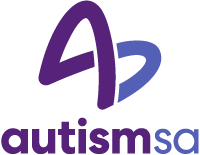“I was diagnosed later in my life, in my late teens. I remember sitting in that diagnostic room and just staring at this poster on the wall. Up until that moment, life was confusing, and I wasn’t sure why I didn’t fit in. When I read the information [about autism] on that poster I sat there gobsmacked. I realised it was me up on that wall. It absolutely blew my mind. Everything I had been through was put into a context, and my diagnosis that day gave me tools to work with, that I didn’t have before.
I was lucky to have a teacher in high school who knew that I was an aspie before I did. Looking back, (he) and other likeminded people were great mentors and coaches, and I can see that having people that understand you makes a huge difference. My Mum had to be an advocate for me during high school, because so many people higher up in the system didn’t understand me. I don’t believe that just awareness and acceptance alone, are enough. It seems empty to accept something but not understand it properly.
I wish more of my teachers understood autism; I believe they need to be tooled up with strategies to accommodate aspies. We’re often removed from classrooms which doesn’t help. We need to be in those social situations so we can learn – if we keep being pulled out of class, then we lack the exposure of learning and what it’s like to be socialising in the classroom with other people. At the other end, I also think it is important that all students are exposed to people from different backgrounds and abilities and taught to treat everyone the same, as we should already do, as this will help in a big way in preparing them to be great adults, carrying our future society with them.
We need to work on and help change society so that inclusion is seen as a normal, everyday basic thing. It shouldn’t be something that we have to think about, stop and do; it should eventually become something we do without thinking. Through this I believe we will make huge accomplishments together because aspies can, and already do, contribute to society in huge, unique, and diverse ways.
Personally, I have had many achievements in life, but I think my biggest achievement and message to others is to not giving up. As an aspie you find yourself in moments in life that are so hard, you feel alone, you just want to give up because things aren’t working, you often cry to yourself and sometimes you just want to stop. Every time I get knocked down; I pick myself up. In the end, the more you do, the wiser and more resilient you become. I cannot emphasise enough – know thyself.”


